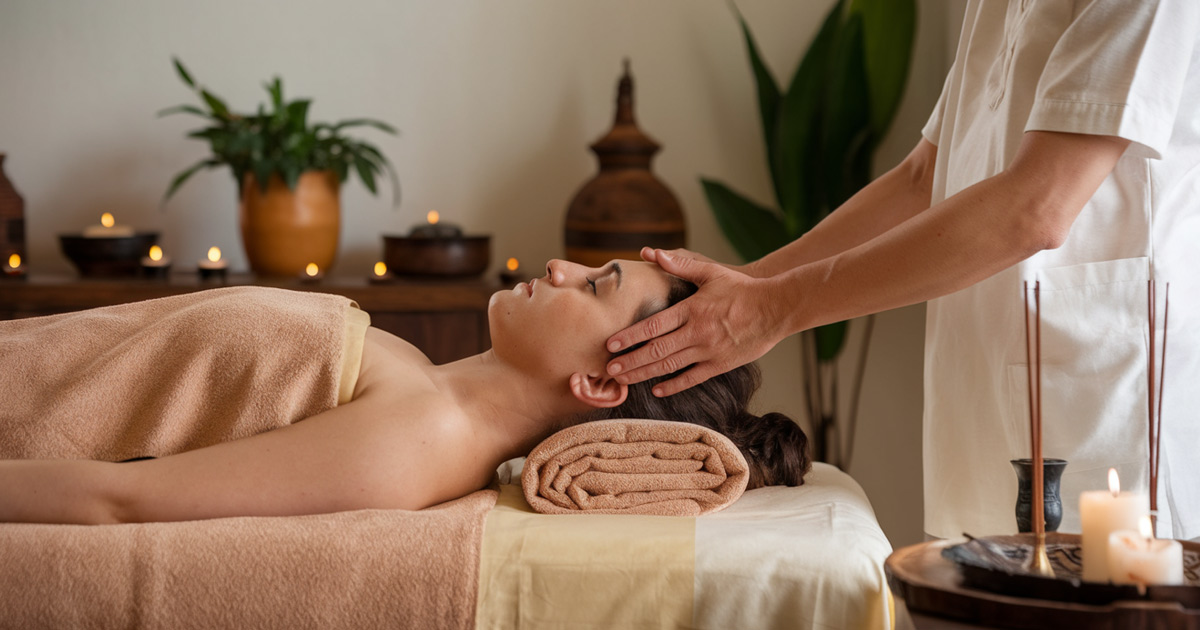
DIPLOMA IN AYURVEDA PATIENT CARE & PANCHAKARMA THERAPY (DAPC&PT)
By NCTA Team Last Updated: April 03, 2025Overview:
Diploma in Ayurveda Patient Care & Panchakarma Therapy is an eleven-month comprehensive program offered by the National Council of Training Academy. This course is designed to equip students with in-depth knowledge and practical skills in Ayurveda and Panchakarma therapy to effectively manage and treat patients through holistic healing techniques.
Students will learn about Ayurvedic principles, patient care practices, and the therapeutic value of Panchakarma treatments. The program covers topics such as Ayurvedic body constitution, herbal treatments, Panchakarma procedures, detoxification therapies, and how to provide personalized care for patients.
This course is perfect for those looking to pursue a career in Ayurveda, offering a well-rounded education in patient care and therapeutic treatments that promote health, wellness, and healing.
Objectives:
Diploma in Ayurveda Patient Care & Panchakarma Therapy equips students with comprehensive knowledge of Ayurvedic principles, Panchakarma procedures, patient care, and personalized treatments for promoting wellness and healing.
Course Curriculum:
The curriculum provides students with a comprehensive understanding of Ayurvedic principles, patient care, and Panchakarma therapies. This course blends theoretical knowledge with practical skills to equip students with the expertise to manage patient wellness and perform detoxification procedures using traditional Ayurvedic methods. Below is the detailed curriculum:
- Fundamentals of Ayurveda:
- Basic principles of Ayurveda
- Concept of Doshas, Dhatus, and Malas
- Diagnostic methods in Ayurveda
- Anatomy & Physiology:
- Ayurvedic and modern perspectives on body systems
- Functions of tissues (Dhatus) and bodily channels (Srotas)
- Importance of balance in maintaining health
- Panchakarma Therapy:
- Overview of Panchakarma (Five Detox Therapies)
- Preparatory and post-therapy procedures
- Indications and contraindications for Panchakarma
- Ayurvedic Herbs & Medicines:
- Classification of Ayurvedic herbs
- Preparation of herbal formulations
- Role of Rasayana (rejuvenation) and Vajikarana (aphrodisiac) therapy
- Diet & Nutrition in Ayurveda:
- Concept of Ahara (diet) and its impact on health
- Ayurvedic dietary recommendations for various conditions
- Importance of digestive fire (Agni) in nutrition
- Patient Care & Management:
- Ayurvedic approach to disease prevention and treatment
- Assessment of Prakriti (body constitution) and Vikriti (imbalances)
- Personalized treatment planning
- Therapeutic Massage & Rejuvenation:
- Different types of Ayurvedic massages (Abhyanga, Shirodhara, etc.)
- Benefits of oil therapies and marma therapy
- Importance of Swedana (sudation) in relaxation and detoxification
- Practical:
- Hands-on training in Ayurveda and Panchakarma therapies
- Patient handling and care techniques
- Ethical guidelines and career prospects in Ayurvedic healthcare
Career Opportunities:
The Diploma in Ayurveda Patient Care & Panchakarma Therapy opens diverse career paths in the growing field of Ayurvedic healthcare. Potential career paths include:
- Ayurvedic Therapist: Provide traditional Ayurvedic therapies and treatments in hospitals, wellness centers, and resorts.
- Panchakarma Technician: Specialize in administering Panchakarma procedures in Ayurvedic clinics and therapy centers.
- Wellness Consultant: Offer personalized Ayurvedic health and lifestyle guidance in health retreats and naturopathy centers.
- Rehabilitation Center Specialist: Assist in Ayurvedic healing techniques for patients recovering from chronic illnesses or injuries.
- Holistic Healthcare Provider: Work with integrative medicine practitioners to offer Ayurvedic therapies alongside modern healthcare.
- Self-Employment & Entrepreneurship: Establish a personal Ayurvedic therapy center, offering specialized treatments and consultations.
Salary Expectations:
Graduates of the Diploma in Ayurveda Patient Care & Panchakarma Therapy can expect an annual salary ranging from ₹2,00,000 to ₹5,00,000 based on experience, location, and job role. Entry-level positions in Ayurvedic clinics and wellness centers may start at around ₹2,00,000 per year, while experienced professionals, particularly those working in high-end wellness resorts or private practice, can earn up to ₹5,00,000 or more. Entrepreneurs running their own Ayurvedic therapy centers have the potential to earn even higher based on client demand and services offered.
Course Features
| Course Code | NCTA-475 |
| Duration | 1 Year |
| Category | DIPLOMA IN AYURVEDA PATIENT CARE & PANCHAKARMA THERAPY (DAPC&PT) |
| Eligibility | 10TH PASS/2-10 Year Experience in Relevant Field |
| Fees | 30000X1=30000 |
To know more about our this course, feel free to call us at:
+91 9733600770
